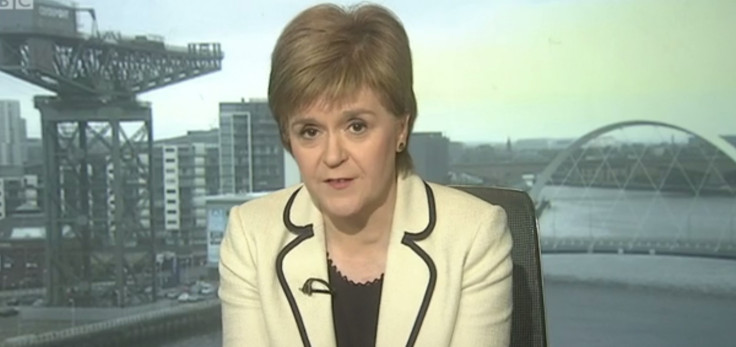Nicola Sturgeon threatens to veto Brexit if terms aren't good for Scotland
Nicola Sturgeon considering Scotland remaining part of the UK and EU.

Scotland's First Minister Nicola Sturgeon has threatened to veto the UK's exit from the European Union, if it is in her power to do so. Sturgeon also suggested there may be a way for Scotland to remain within the United Kingdom and the European Union. However, both suggestions were dismissed by the new 'Brexit Minister' David Davis.
Sturgeon, who took over as leader of the Scottish National Party (SNP) and became first minister following the resignation of Alec Salmond, following the 2014 referendum on Scottish independence, has made no secret of her dismay over the Brexit vote. In Scotland, the number who voted to remain within the EU comfortably outweighed those who chose to leave and within hours Sturgeon was in Brussels pleading her case for Scotland to stay in the EU no matter what.
There is considerable reluctance in the EU to consider Scottish independence, as this may encourage similar calls from Catalunya, the Basque Country and other disputed areas.
The UK's new prime minister, Theresa May, made it clear in her first speech outside 10 Downing Street that preserving the union of the UK was a key priority, and within two days she was in Edinburgh for a meeting with Sturgeon, described as cordial despite the many political differences between the two women.
After their meeting, May said: "I won't be triggering Article 50 until I think that we have a UK approach and objectives for negotiations. I think it is important that we establish that, before we trigger Article 50."
Although she prefers holding a second Scottish referendum, possibly as early as 2017, Sturgeon has put forward the idea of Scotland remaining within the EU and the UK.
"We are in uncharted territory," Sturgeon told the BBC's Andrew Marr, "and when you're in uncharted territory with effectively a blank sheet of paper in front of you, then you have an opportunity to think things that might previously have been unthinkable and shape the future. So I think there are opportunities.
"I think the positive outcome of the meeting I had with the prime minister on Friday was that she said she was prepared to listen to options that the Scottish government would bring forward to give effect to how Scotland voted and we will certainly bring forward options."
The Ireland problem
However David Davis, the cabinet minister in charge of negotiating the terms of Brexit, said Salmond's proposals were unrealistic.
"One of our really challenging issues to deal with will be the internal border we have with southern Ireland, and we're not going to go about creating other internal borders inside the United Kingdom," Davis told Sky News. "They [Scotland] can't have a veto because 17 and a half million people have given us a mandate, they've told us what to do, we can't disobey it."
Northern Ireland is a part of the UK, while the Republic of Ireland is a member of the EU. If the UK leaves the EU, it may mean that a border would have to be enforced between the Republic and the north-eastern province of the island.
© Copyright IBTimes 2024. All rights reserved.






